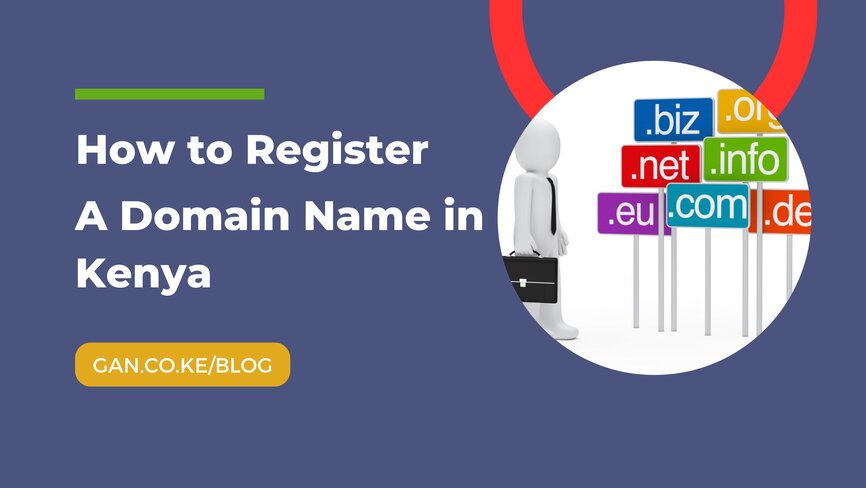
A domain name is your website’s address. When people search for you online, they type it into their browsers. It directs people directly to your website, much like your home address does for your online presence.
Domain Registration Dos & Don’ts
Dos
Choosing the Right Domain Name
Choosing the ideal domain name is crucial when it comes to domain registration. It resonates with your audience and represents your online persona. Start by coming up with a list of business-related terms. Make your domain name memorable by combining memorability and simplicity. Make sure it is consistent with your brand so that it is easier to remember. Spend some time confirming its availability and looking for trademarks.

For search engine exposure, strategically use keywords. An effective online presence is made possible by a carefully considered domain name, which creates the conditions for your company to thrive in the digital sphere.
Research and Check Availability
Doing extensive research and verifying availability are essential steps in the domain registration process. Investigate domain registrars and their services first. Use reliable domain search tools to determine the availability of a domain. Check its availability on several platforms. Be careful to look for related pre-existing domains.
Make sure the domain is distinct and one-of-a-kind. Examine any past events related to the domain. Check for any warning signs or history of abuse. You set the stage for successful domain registration and place your company in the best possible position online by devoting time to thorough research and availability checks.
Opting for Relevant Domain Extensions
Selecting the right domain extensions is essential when thinking about registering a domain. Make sure the extension fits your audience and business type. Use “.com” for broad usage and visibility. For tech-focused businesses, choose “.tech.” Make use of country-specific extensions for nearby companies. For e-commerce endeavors, choose “store.”
Make sure it’s in line with the mission and message of your brand. For organizations and non-profits, use “.org.” By efficiently connecting with your target audience and communicating a distinct brand message, using the appropriate domain extension improves your online visibility.
Privacy and Security Considerations

Prioritizing security and privacy is crucial while registering a domain. Learn about your domain registrar’s data protection rules first. Make sure that SSL encryption is in place for safe data transfer. Boost security by using two-factor authentication. WHOIS privacy protection restricts public access to personal data.
Change passwords frequently and use secure, one-of-a-kind combinations. Keep a regular check on the security of your domain. By carefully implementing these privacy and security measures, you establish a more secure online environment for your company, ensuring the comfort of both you and your customers.
Read Also: What you need to Know about Domain Security
Renewal and Maintenance
Proactive maintenance and timely renewal are non-negotiable when it comes to domain registration. For smooth operations, set up automated renewal reminders. Review and update payment and contact details regularly. To prevent inadvertent lapses, keep track of the renewal dates. Keep an eye on domain performance and take quick action to fix any problems.
Make regular backups of your website and related information. You may guarantee a continuous, functional online presence for your company by adhering to regular renewal and maintenance procedures, which will improve dependability and promote satisfying user experiences.
Don’ts
Avoiding Complex or Confusing Domain Names
Avoid utilizing complicated or perplexing domain names when registering a domain. The secret to audience recall is simplicity. Long or complicated terms turn off potential visitors, so stay away from them. Make sure your domain name is clear and concise. Users may become frustrated and misunderstand complex domain names.
To preserve a satisfying user experience and promote simple navigation, choose clarity. Your target audience will remember and be more receptive to the substance of your brand if it is clear and succinct.
Refraining from Trademark Infringement
Avoiding trademark infringement while registering a domain is a must. Examine all of the current trademarks that are associated with your domain name. Make sure your domain doesn’t infringe upon any trademarks and is unique. By doing this, you protect your company from legal issues.
Observe intellectual property laws and avoid any possible violations. Make sure your domain is unique and does not copy well-known trademarks. By following trademark laws, you protect your company’s standing in the marketplace and give your audience a more reliable impression of you.
Steering Clear of Unnecessary Length and Hyphens
To create a clear and short domain name, stay away from superfluous length and hyphens while registering a domain. Long domains are difficult to memorize. Hyphens have the potential to be confusing and break the flow. Names that are brief and straightforward are easier to remember and convey. To improve user experience, be brief.
A domain free of hyphens guarantees clear communication and prevents possible miscommunications. Selecting a concise domain name increases accessibility and boosts the internet presence of your company.
Skipping Research on Previous Ownership and History
Make sure to investigate the domain’s past ownership and history before registering it. Look into any possible red flags. Knowing a domain’s past makes it easier to spot any abuse. This guarantees a trustworthy and orderly domain registration procedure.
Ignoring this study could result in unanticipated difficulties. A successful registration requires a thorough understanding of a domain’s history. By carrying out an in-depth study, you can prevent any unforeseen issues and guarantee a seamless transition into domain ownership.
Neglecting Renewal Reminders and Expiry
Ignoring renewal notifications and expiration dates is a crucial mistake when registering a domain. Configure automatic renewal reminders. When a domain is not renewed, it may expire. To prevent interruptions, keep a close eye on the renewal dates. An internet presence can be lost if a domain is not renewed.
Take proactive measures to guarantee continuous services. To avoid inadvertent expiration, update payment details frequently. Maintaining a consistent online appearance for your company and guaranteeing ongoing accessibility and service delivery to your audience are achieved by giving timely renewal priority.
How To Register A Domain Name In Kenya
Step 1: Choose A Domain Name
- Choosing a name that accurately reflects your business or the goal of your website is the most crucial step. Keeping it brief, straightforward, memorable, and pertinent to your business or content is crucial. Don’t use hyphens, symbols, numerals, or complicated spellings or words.
- Use keywords. Search engine rankings and online discoverability can both be improved by including company or brand-related keywords in your domain name.
- Before choosing a name, make sure it’s available. This function is accessible on reliable domain registration websites. Simply enter the name you want to use in their search field, and it will automatically determine whether it is available or warn you if it is already being used by someone else.
Step 2: Choose A Domain Extension
A top-level domain (TLD), sometimes referred to as a domain extension, is the suffix that comes after your domain name. The term that follows the dot is called “com,” “org,” “edu,” “co. ke,” and so on. It identifies the kind of website or its objective.
- Co.ke is Kenya’s country code and a well-liked option for companies and individuals with offices there.
- .com: This is the most widely used generic domain globally, making it a noteworthy option for companies and people seeking to expand internationally.
- .org: Charity organizations and nonprofits frequently use this extension.
- Businesses that deal with networking or technology frequently use.net.
Each extension helps users understand the type and origin of the website they are viewing by serving a particular function or geographic area. Your target demographic and the image you wish to project should be taken into account when selecting an extension.
Step 3: Finding A Reliable Domain Name Registrar

Numerous registrars and providers are accessible online. Finding a registrar requires investigation, or even better, speaking with an expert. Choosing the incorrect supplier could result in you being defrauded and losing money as a result of unintentionally paying concealed domain costs.
Factors To Consider When Choosing a Domain Name Registrar
- Domain Expiration Policy: To stop others from using your domain name, you must renew it before it expires. To prevent expiration problems, pick a register that provides automated renewal or payment reminders.
- Add-on Services: Take into account registrars that provide beneficial add-on services like domain parking or protection while making your selection. With domain parking, you can reserve a domain name without using it to host a website right away. In essence, a domain is held on a server until you’re prepared to start building your website.
- Pricing: Read the registry’s terms of service and look for any hidden fees before completing a purchase. Transfer fees, DNS administration fees, privacy protection fees, and so forth are examples of hidden charges.
- Domain Transfer Policy: Although it is feasible to move domains between registrars, some providers could make the procedure more difficult or impose extra costs. Always check the transfer policy of the register before buying anything.
Step 4: Register your domain name
- After deciding on a name and verifying its availability, it’s time to register. Here’s how you do it:
- Visit the website of your preferred registry.
- Type the domain name you want to use in the search bar. If it’s available, select “Add to Cart.”
- Additional services like website-building tools, email hosting, and domain privacy protection may be made available to you. Select these extras and, if you’d like, add them to your cart.
- Go ahead and check out.
Step 5: Complete The Registration Form
Your name, address, phone number, and email address are among the essential details you will need to supply.
Your domain will be linked to this information, which is necessary to finish the registration.
Step 6: Make Payment
Once your information has been entered, you will need to pay. Although domain names are typically registered once a year, choosing multi-year registration frequently results in a better price.
Use the payment method of your choice to finish the transaction.
You will receive a confirmation email upon payment. You may be asked to confirm your email address by certain registrars. To finish the verification procedure, adhere to the guidelines in the email.
Step 7: Configure your domain
Once your domain has been registered, you can set it up to reroute traffic to your website. This entails configuring DNS records, which your web hosting company can assist you with. If you’re using a website builder such as WordPress, connecting your domain is simple. It is that easy.
Conclusion
Once you know the steps, registering a domain in Kenya should be simple and quick. To get your business online in the digital age, get inexpensive domains in Kenya and follow these easy steps. Since a domain name is the foundation of your internet business, get one for yourself!






